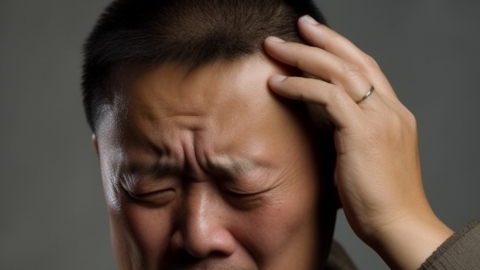What causes headaches accompanied by tinnitus?
Generally, headaches accompanied by tinnitus may be caused by mental factors, environmental factors, migraines, cervical spondylosis, hypertension, and other reasons. Symptomatic treatment through general therapy, medication, and other methods is needed. If discomfort occurs, it is recommended to seek timely medical advice and undergo corresponding treatment under a doctor's guidance. A detailed analysis is as follows:

1. Mental Factors
Prolonged mental tension, anxiety, or excessive stress may lead to central nervous system disorders, affecting local nerves, resulting in headaches accompanied by tinnitus. It may also be accompanied by symptoms such as emotional instability, decreased sleep quality, and difficulty concentrating. It is recommended to relax by ensuring adequate rest and engaging in appropriate outdoor activities to help alleviate symptoms.
2. Environmental Factors
Long-term exposure to noisy environments can stimulate the ears, causing tinnitus. Noise can also cause cochlear damage and auditory nerve lesions, constrict brain blood vessels, affect cerebral blood circulation, thereby causing symptoms of headache and tinnitus. It is recommended to avoid prolonged exposure to noisy environments or wear appropriate earplugs for protection.
3. Migraine
Migraine is a periodic neurovascular headache, possibly related to genetic and endocrine disorders. Migraine causes cerebral vasodilation and abnormal nerve conduction, thus affecting the auditory nerve and causing tinnitus. At the same time, vasodilation may also trigger headaches, accompanied by symptoms such as blurred vision, light sensitivity, and mood swings. It is recommended to follow medical advice to use medications such as [specific drugs] to relieve symptoms.
4. Cervical Spondylosis
Cervical spondylosis may be related to developmental spinal stenosis, chronic strain, and other factors. Herniated cervical discs or bone spurs may compress nerve roots, affecting nerves in the head and ears, causing headaches and tinnitus, possibly accompanied by symptoms such as neck stiffness and numbness in the upper limbs. It is recommended to take medications such as chlorzoxazone tablets, eperisone hydrochloride tablets, and naproxen sodium tablets under medical guidance for treatment.
5. Hypertension
Long-term high-salt diet, emotional fluctuations, genetic factors, and other reasons may cause hypertension. Hypertension places greater pressure on the vascular walls, affecting blood flow to the head and ears, leading to headaches and tinnitus, possibly accompanied by palpitations, shortness of breath, and other symptoms. It is recommended to follow medical advice to use medications such as nifedipine tablets, methyldopa tablets, and captopril sustained-release tablets to alleviate symptoms.
When experiencing headaches accompanied by tinnitus, it is recommended to promptly lie down in a quiet place with soft lighting, relax the body and mind, and alleviate physical tension to help reduce discomfort.




